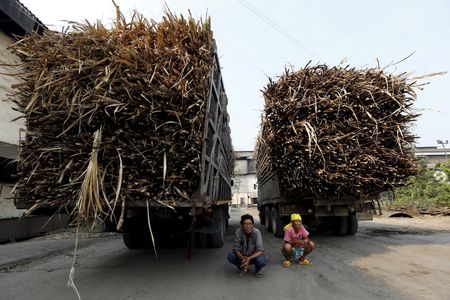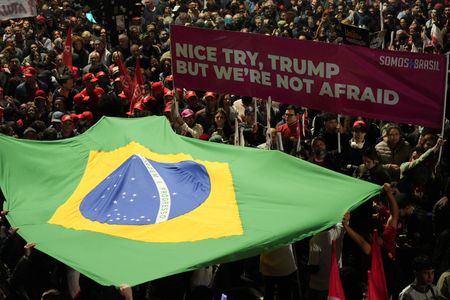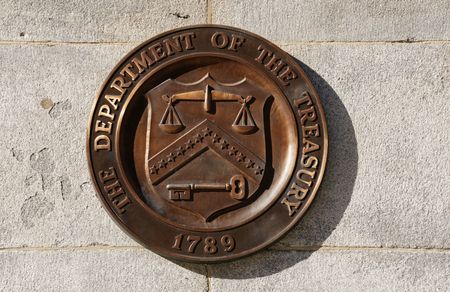By Panarat Thepgumpanat
BANGKOK (Reuters) – Thai businesses are expected to incur up to 1 billion baht ($29.5 million) in losses from China’s ban on sugar syrup and premixed powder exports from the Southeast Asian nation, with shipments left stranded in Chinese ports, industry group said.
China suspended imports of syrup and premixed powder from Thailand – the world’s second-largest sugar exporter – in December because of concerns over factory hygiene.
“Initially, we estimated the damage at 300 million to 400 million baht, but now it should be one billion,” Todsaporn Ruangpattananont, president of the Thai Sugar Product Association, told Reuters.
Todsaporn, whose association represents 44 sugar mills that mainly supply to China, said he had written a letter to the Thai government to speed up negotiations with Chinese authorities.
“The sugar is in Chinese ports, we pay fines every day,” he said.
Thailand was China’s main supplier of liquid sugar last year with shipments of more than 1.2 million metric tons, according to supply chain services company Czarnikow.
The ban weighed on global prices earlier this month, with white sugar futures on the ICE exchange at their lowest in three years.
Todsaporn said that he believed one reason for the ban was that Chinese authorities were seeking to protect local sugar producers, due to rising imports from Thailand.
“To make claims about the quality of our sugar doesn’t make sense at all,” he said. “In the past, there has never been evidence of problems with the quality of our products.”
Chinese authorities have asked Thailand to inspect dozens of factories before opening negotiations to lift the ban because of concerns over factory hygiene, Thai officials said last week.
The government sent a list of Thai factories with licenses from the Thai Food and Drug Administration, together with details of existing food safety regulations, to China on Jan. 14, two Thai officials told Reuters.
The officials declined to be named because they are not authorised to speak to media.
Rangsit Hiangrat, a director at the Thai Sugar Millers Corporation, which has 46 sugar mills nationwide, said his group had also urged the Thai government to accelerate negotiations.
“Thai sugar factories have certified standards and export to the world,” he said, adding that many factories were ready for inspections.
If the ban isn’t lifted, it could cut demand for Thai sugar by one million metric tons this year – the same amount used in making sugar syrup and premixed powder, a mixture of sugar and other food ingredients, last year, according to Todsaporn.
“It will definitely affect domestic prices,” he said. “We won’t buy more sugar as our warehouses are overflowing with sugar.”
($1 = 33.93 baht)
(Reporting by Panarat Thepgumpanat; Writing by Orathai Sriring; Editing by Devjyot Ghoshal and Michael Perry)








